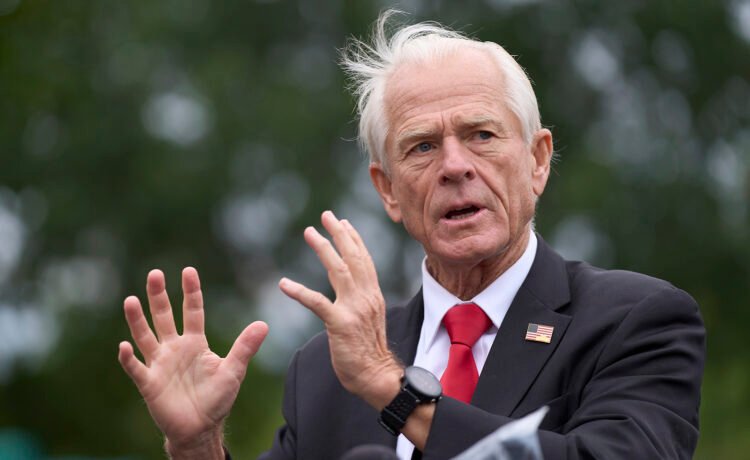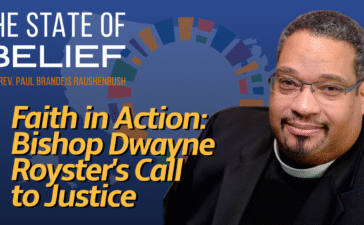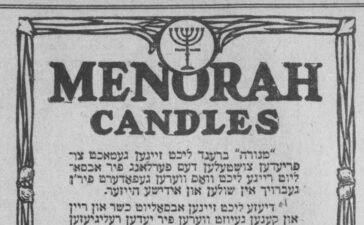(RNS) — President Donald Trump’s senior trade adviser has sparked accusations of Hinduphobia after using the term “Brahmins” to criticize India’s elite, prompting Hindu American groups to call for his immediate removal.
Peter Navarro, speaking Sunday (Aug. 31) on Fox News about the administration’s new 50% tariff on Indian goods, denounced India’s trade policies before making the controversial comment.
“You have got Brahmins profiteering at the expense of the Indian people, and we want that to stop,” Navarro said, also calling New Delhi “nothing but a laundromat for the Kremlin.”
Navarro’s use of the word Brahmin — a term that refers to the highest social caste in Hindu society — launched ire in the Hindu diaspora and in India, from social media memes ridiculing Navarro’s “misunderstanding” of Indian caste dynamics, to calls for his firing.
“This is not foreign policy,” said Ajay Shah, executive chair of the lobbying organization HinduPACT, in a statement released Tuesday. “This is weaponized Hinduphobia. Dividing Hindus through colonial scripts doesn’t build relationships. It destroys them. People like Navarro have no place in American political life.”
Navarro’s comments came during Indian Prime Minister Narendra Modi’s first visit to China in seven years, where he met with Russian President Vladimir Putin and Chinese President Xi Jinping. At the end of August, Trump’s administration announced an increased tariff on Indian goods, with an added penalty for India’s purchasing of Russian weapons and oil. The tariff, which India has condemned as “unfair, unjustified and unreasonable,” is among the highest imposed on any U.S. trade partner.
American Hindus Against Defamation, a watchdog offshoot of HinduPACT that co-wrote the statement, called for the firing of Navarro based on his “reckless provocation” that “endangers the dignity of over a billion Hindus.”
“Using caste rhetoric to pressure a democratic ally is beneath the democratic dignity of the United States,” read the statement.
In Hindu tradition, Brahmins occupy the highest tier of the social order known as varna, or caste, a birth-based social hierarchy. Brahmins have historically been associated with priestly and scholarly responsibilities, including conducting rituals, providing spiritual guidance and preserving sacred Scriptures. Over the centuries, their influence has extended beyond temple life into spheres such as education, governance and intellectual leadership. Brahmins make up an estimated 4%-5% of India’s population today.
Indian industrial CEO Harsh Goenka posted a widely shared response to Navarro on social media, emphasizing the idea that many of the top-earning influencers of India, including Modi himself, are not considered Brahmins.
“Dear Peter Navarro,” he posted. “India’s boardrooms aren’t run by Brahmins. Tata? Not Brahmin. Reliance? Not Brahmin. Mahindra? Not Brahmin. Wipro? Not Brahmin. Birla? Not Brahmin. But India’s soldiers, scientists, poets? Many were … Unlike some others who are trying to lobby for the Nobel prize, our Brahmins got their prize only through merit. – An Indian (not a Brahmin).”
Priyanka Chaturvedi of India’s conservative Shiv Sena political party posted on X, “Peter Navarro’s invocation of a particular caste identity in India to make his point, even if it is to imply the ‘privileged lot’ vis a vis the rest, is shameful and sinister. PS: spare me sermons on usage of the word Brahmins in American context.”
(In the U.S., the term Brahmin has sometimes had other meanings: In 19th- and early 20th-century New England, “Boston Brahmins” referred to an elite class of wealthy, white Protestant families whose influence shaped the region’s cultural and political institutions.)
American Hindus have long debated caste’s role in modern life, with some arguing that an overemphasis on condemning caste, and labeling it as a potential tool for discrimination, has led to “Hinduphobia.” They say that caste distinctions were created by the British Empire to divide and conquer Indians and that casteism no longer plays a role in opportunity or access in India, where it is now outlawed. Others find a birth-based hierarchy in ancient Hindu Scripture and argue that casteism persists in universities and workplaces today in more subtle biases among Indian Americans.
There is evidence that higher castes comprise the majority of Indian immigrants to the U.S., with one study putting the figure at 90% of Indian Americans. There are dozens of Brahmin groups across Indian linguistic and ethnic groups, including the “TamBrams,” or Tamil-speaking Brahmins, who include American CEOs Sundar Pichai and Indra Nooyi. Former Vice President Kamala Harris’ mother, Shyamala Gopalan, was also a member of this group.
A 2024 study by the Carnegie Endowment for International Peace reported that 32% of Indian American survey respondents said they did not identify with any caste, and 46% identified as “general or upper caste.” The overwhelming majority of Indian American respondents supported measures to formally outlaw caste discrimination.
Still, say Hindu advocates such as Deepa Karthik, general secretary of HinduPACT, caste rhetoric is commonplace in America from non-Indians.
“When someone like Navarro uses caste to shame India, it lands on Hindus here,” she said in the press release. “Kids get bullied. Workers get profiled. We get treated like we owe the world an apology for our heritage.”






